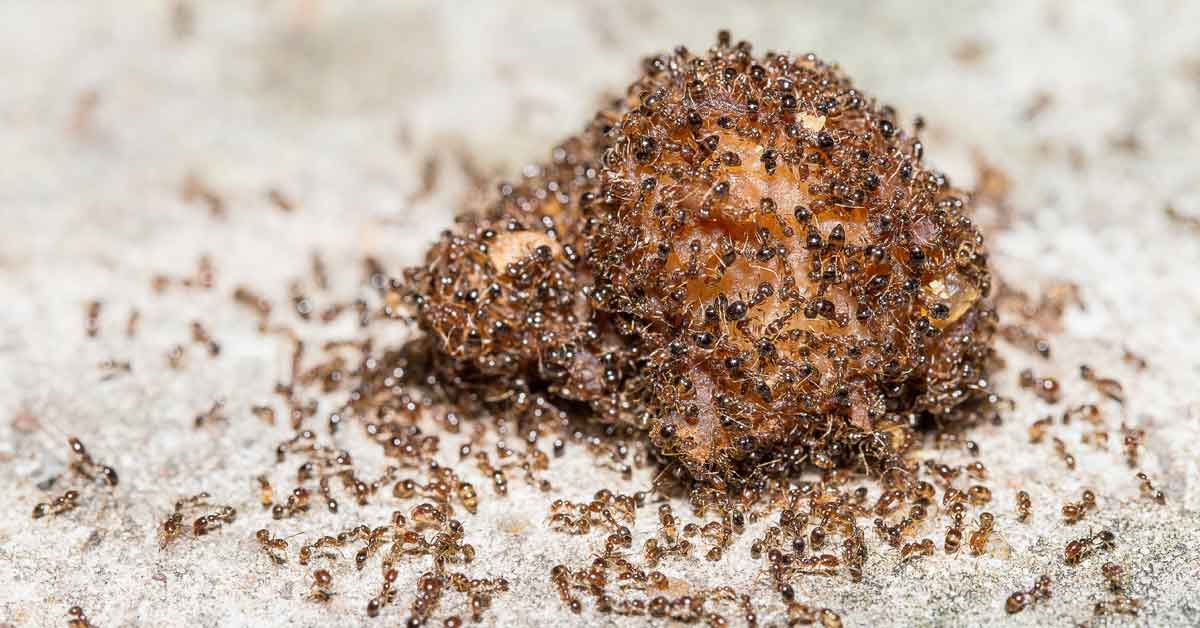Leading Ant Control Services: Reputable Solutions for Your Home or Business
Leading Ant Control Services: Reputable Solutions for Your Home or Business
Blog Article
Ecological Impact of Parasite Control: Balancing Effectiveness With Sustainability
The environmental influence of insect control is an essential issue that requires a fragile equilibrium in between attaining efficiency in making sure and managing bugs sustainability of our ecosystems. As we aim to protect our crops, homes, and wellness from the hazards postured by insects, the approaches we employ can accidentally damage the atmosphere. From making use of unsafe chemicals that seep into our soil and water to the unexpected repercussions on non-target types, the effects of conventional insect control techniques are far-ranging. However, there are emerging techniques that use wish for a more lasting technique to pest management. These remedies not only purpose to address the prompt parasite issues however additionally think about the long-term health of our planet.
Damaging Chemicals in Pest Control
The usage of harmful chemicals in bug control positions significant environmental and health and wellness threats that require cautious consideration and reduction methods. Pesticides, chemicals, and herbicides are frequently utilized to remove bugs, however their prevalent application can result in unexpected effects. These chemicals can pollute soil, water sources, and the air, impacting not just the targeted pests however additionally helpful bugs, wildlife, and human beings.

To deal with these dangers, incorporated parasite administration (IPM) methods are being promoted as an extra lasting alternative. IPM entails a mix of methods such as biological control, environment manipulation, and the targeted use pesticides as a last resource (ant control gastonia nc). By embracing an alternative approach to pest control, we can minimize the environmental and health impacts related to hazardous chemicals while properly managing pest populations
Effect On Non-Target Types
Taking into consideration the unplanned repercussions of parasite control methods, the influence on non-target varieties is a critical element that calls for extensive analysis. While bug control measures aim to target details bugs, other microorganisms in the environment might be unintentionally influenced. Non-target varieties, consisting of useful pests, birds, mammals, and also plants, can suffer straight or indirect damage from chemical applications or biological control methods.
Pesticides developed to battle a certain bug bug might harm pollinators like or natural killers such as ladybugs. Biological control agents, if not species-specific, can posture dangers to unplanned targets, interrupting the eco-friendly balance.
To minimize the influence on non-target types, incorporated parasite management (IPM) methods that emphasize an all natural method to pest control are suggested. These approaches focus on using environmentally friendly techniques, decreasing injury to beneficial organisms while properly taking care of pest populaces. Performing complete danger evaluations and checking the end results of insect control initiatives are vital steps in safeguarding non-target species and advertising overall ecological community health.
Soil and Water Contamination
Unintentional environmental repercussions of pest control methods prolong beyond impacting non-target types, with significant effects for dirt and water contamination - termite control services. Chemicals, herbicides, and chemical fertilizers used in bug control can seep into the dirt and infect groundwater, posing a hazard to both water and earthbound environments.
Water contamination is another essential problem connected with pest control techniques. To minimize soil and water contamination from bug control tasks, incorporated parasite management methods that prioritize sustainability and lessen chemical inputs are vital.
Air Air Pollution From Chemical Use
Exposure to airborne pesticides throughout agricultural applications positions a significant problem for air contamination control steps. They can volatilize into the air and type unstable organic compounds (VOCs) and other air-borne toxins when pesticides are splashed onto crops - termite control. These chemicals can contribute to the development link of ground-level ozone, a major element of smoke that can have harmful effects on human health and wellness, crop performance, and general air high quality. In addition, chemical drift, where pesticides are carried by the wind to unintentional areas, can bring about the contamination of nearby environments and water bodies.

Techniques for Lasting Bug Control
In the realm of agricultural techniques, applying lasting insect control strategies is paramount for maintaining environmental equilibrium and safeguarding crop yields. Lasting insect control highlights using eco-friendly approaches to handle insect populaces successfully while reducing injury to non-target organisms and environments. Integrated Pest Monitoring (IPM) is a commonly embraced strategy that combines biological, social, physical, and chemical control techniques to attain long-term bug management solutions.
Crop rotation and diversification are likewise reliable strategies to interfere with pest life cycles and produce much less favorable problems for pests to prosper. Inevitably, by incorporating these lasting pest control techniques, farmers can attain an equilibrium between pest administration efficiency and environmental stewardship.
Conclusion
Finally, the environmental impact of pest control techniques have to be meticulously taken into consideration to balance efficiency with sustainability. Hazardous chemicals utilized in bug control can bring about soil and water contamination, air pollution, and damage non-target species - termite control services. It is vital to implement lasting parasite control methods to reduce these adverse effects on the setting and promote a much healthier community for future generations
By taking on an alternative strategy to pest control, we can reduce the ecological and health effects associated with unsafe chemicals while efficiently taking care of pest populations.

To reduce the air contamination triggered by pesticide usage, it is essential to adopt integrated bug management strategies that focus on the usage of non-chemical parasite control approaches, such as plant turning, natural killers, and resistant plant varieties. Sustainable parasite control highlights the usage of environmentally pleasant approaches to handle bug populations properly while reducing injury to non-target organisms and ecosystems. Integrated Bug Management (IPM) is a commonly adopted technique that combines biological, social, physical, and chemical control approaches to achieve long-lasting parasite administration remedies.
Report this page